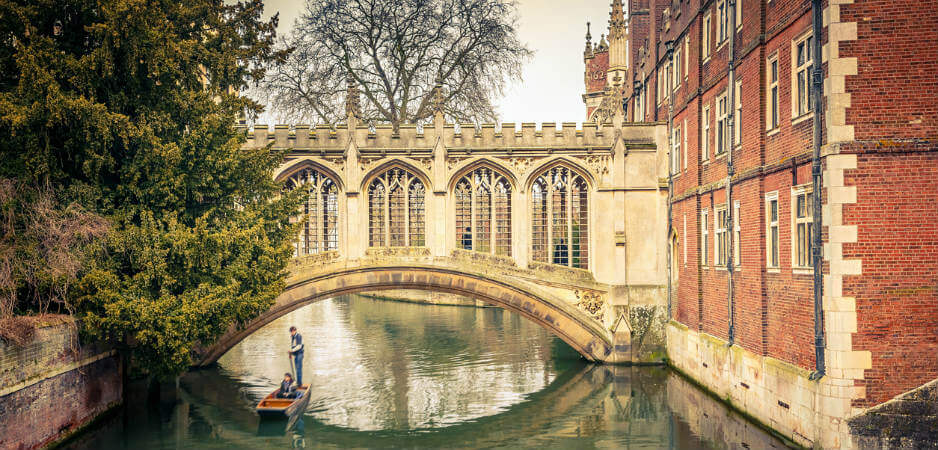A Russian academic finds herself caught up in an unlikely spy scandal.
Between Foreign Secretary Boris Johnson’s push for the £100-million Royal Yacht Britannia, the current government’s “trading nation” narrative and Labour Party leader Jeremy Corbyn’s plan to put the economy on a nationalized train back to the 1970s, nostalgia seems to be writing the script of British political life. Unfortunately, Britain’s trend of going back to the future does not stop at the gates of Westminster. As one unfortunate Cambridge historian has found out, the unsettling paranoia that Russians in the West are all spies among us has made an unsettling comeback.
The historian in question is Svetlana Lokhova, whose story is a disturbing exemplar of how tensions between Russia and the West are impacting the lives of average Russians living and working in the United Kingdom, Europe or the United States.
Because of brief interactions with former White House National Security Adviser Michael Flynn within the context of her work as an academic, Lokhova has been caught up in the scandal surrounding President Donald Trump’s entourage and the extent of its involvement with Kremlin machinations. Ironically, it was her expertise in Russian spy rings that cast her into the path of the disgraced American general. She is accused of somehow using historic documents that date back to Joseph Stalin in 1912 to recruit him at a dinner following a talk at the Cambridge Intelligence Seminar, perhaps the world’s premier academic forum on the Western spy world.
Accused of being a Russian operative, Lokhova has seen her world turned upside down. There is of course no proof of her involvement in any sort of Russian espionage, but she’s already been forced to move home in an attempt to shake off media attention. Some of the most sensationalist coverage, fed by conspiratorial thinking among certain anti-Trump segments of the blogosphere, has even portrayed her as a “honeytrap” — presumably because there is no other reason for a Russian woman to be at the University of Cambridge.
Lokhova is understandably scathing in how she reacts to this portrayal of the encounter unfolded. As she told the BBC: “If I did recruit Flynn that would have been one of the greatest — if not the greatest — Russian coup of all times. So it is utterly ridiculous, totally unbelievable. But, for some reason, the world today is such that people buy it.”
The general atmosphere of fear and suspicion has turned Lokhova into collateral damage, but she is not the only Russian caught up in America’s growing scandal through no apparent fault of their own. In comparison with Lokhova, though, some of the other victims have considerably more resources at their disposal when it comes to defending themselves. One prominent example is Oleg Deripaska, aluminium magnate and owner of UC Rusal.
Two months ago, the Associated Press alleged Deripaska had contracted lobbyist and one-time Trump campaign chairman Paul Manafort to work on behalf of Russian government interests. The businessman has not taken these accusations lying down. On May 15, he officially filed a libel suit against the AP in US courts. In weeks prior, he placed full-page ads in The Washington Post and The Wall Street Journal to refute what he described as a campaign of character assassination and demand the news organization provide evidence of the work it claims Manafort performed (which, for the record, it has not). To reinforce just how serious he was being, Deripaska offered to testify before the US Congress to clear his reputation.
If the aluminium tycoon does make the trip to Washington, he may not be alone. Eugene Kapersky, founder of global cybersecurity firm Kapersky Labs, has also had to refute allegations as the FBI investigates whether his firm “maintains any troubling relationships with the Russian government.” US intelligence leaders said on May 11 they would not be comfortable having Kapersky software installed on their computers. Kaspersky hit back with his own offer to testify, although not without taking the opportunity to generate some free publicity. Responding in the middle of a Reddit Q&A session, he wrote: “I’m very sorry these gentlemen can’t use the best software on the market because of political reasons.”
Of course, Deripaska and Kaspersky both live in Russia. As a British citizen living in the UK, Lokhova is a more representative example of what exactly Russian expats can find themselves facing in the current climate. The irony is that many of them do not necessarily support President Vladimir Putin. Many of the 800,000 Russian speakers in the US voted for Trump in the hope of preventing “socialist values that made them flee the Soviet republics.” Evgeny Finkel, a political science professor at the Columbia College of Arts and Sciences, argues that while his politics may be different, Putin’s regime still carries the taint of Soviet ideology.
This is the catch-22 that any Russian who maintains ties to the old country needs to fear. Whether they left to escape Russian domestic politics or simply prefer the way they are able to live their lives elsewhere, simply being Russian is now seen as worthy of suspicion. Whatever really happened between Donald Trump’s campaign and the Russian government in 2016 will likely take years to establish for certain, but as speculation swirls, innocent people are almost certainly getting caught up in the crossfire.
The views expressed in this article are the author’s own and do not necessarily reflect Fair Observer’s editorial policy.
Photo Credit: sborisov
Support Fair Observer
We rely on your support for our independence, diversity and quality.
For more than 10 years, Fair Observer has been free, fair and independent. No billionaire owns us, no advertisers control us. We are a reader-supported nonprofit. Unlike many other publications, we keep our content free for readers regardless of where they live or whether they can afford to pay. We have no paywalls and no ads.
In the post-truth era of fake news, echo chambers and filter bubbles, we publish a plurality of perspectives from around the world. Anyone can publish with us, but everyone goes through a rigorous editorial process. So, you get fact-checked, well-reasoned content instead of noise.
We publish 2,500+ voices from 90+ countries. We also conduct education and training programs
on subjects ranging from digital media and journalism to writing and critical thinking. This
doesn’t come cheap. Servers, editors, trainers and web developers cost
money.
Please consider supporting us on a regular basis as a recurring donor or a
sustaining member.
Will you support FO’s journalism?
We rely on your support for our independence, diversity and quality.






